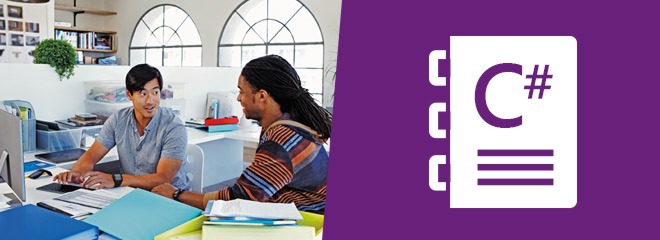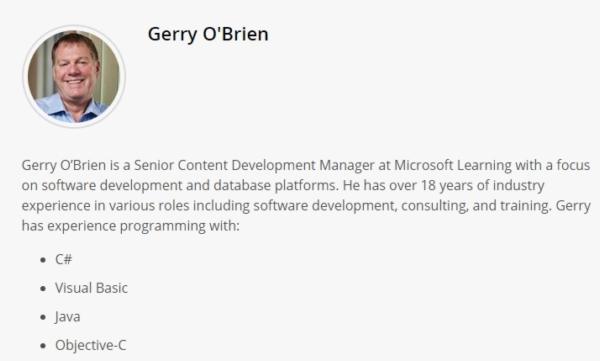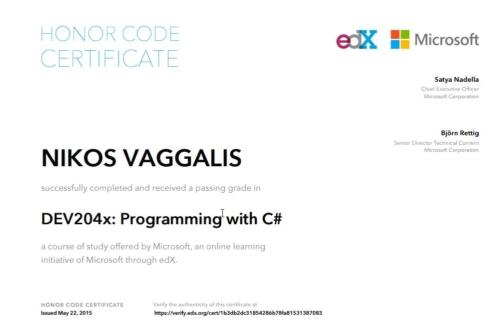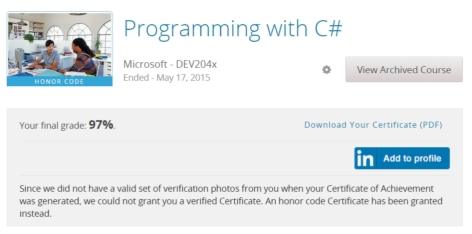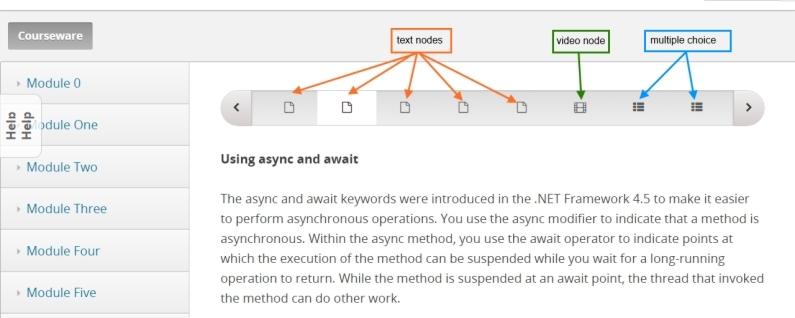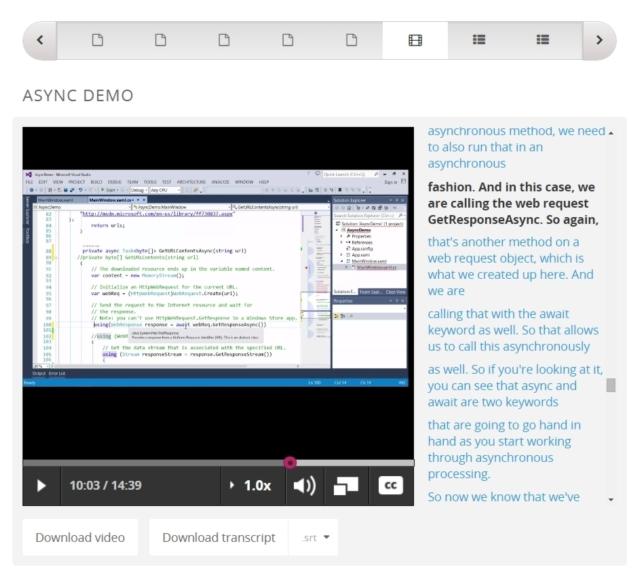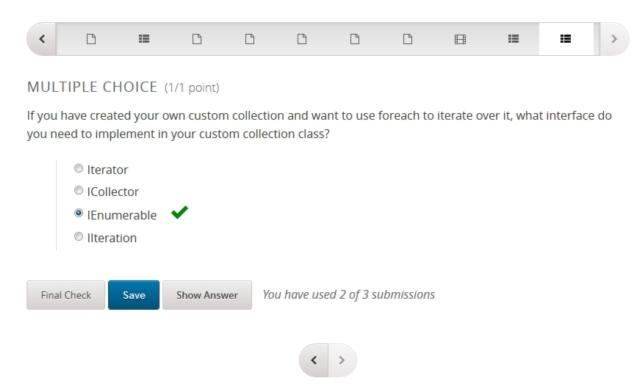| C# on edX - A Programmer's Review |
| Written by Nikos Vaggalis | |||
| Friday, 29 May 2015 | |||
Page 1 of 2 If you want to get started with C# and .NET you'll be interested in a course about Microsoft technologies that is available free of charge on the edX platform .
Sue Gee had news of Microsoft Courses On edX back in March when seven courses taught by Microsoft experts using a MOOC format were announced. Nikos Vaggalis was among the first cohort for the C# course and here he provides a comprehensive review. DEV204x Programming with C# is a course about Microsoft technologies not run by a third party but exclusively designed and run by Microsoft itself and delivered on the edX platform. Meet the Instructor
Making a free course available is surely a generous move. However, it was met with skepticism by some who decried the idea as blatant advertisement on Microsoft’s behalf, solely looking at gaining wider market shares by luring potential developers into its realm. Unselfish move, advertisement, or not, it doesn’t really matter since both Microsoft and developers win and benefit equally, something evident by the sheer interest and attendance which was estimated to about 55 thousand student applications from all around the globe! Certification
Passing the course with a 70% or more will gain you a certificate. There are two choices - Honor Code which certifies that you have successfully completed a course but does not verify your identity; and Verified, which requires photo ID and payment of a fee, in this case $90. One caveat, if you want a Verified certificate make sure you have suitable ID. The edX verification process requires a document that displays your photo on the same page as your signature. My ID didn't conform to this and as a result I could only be issued an Honor Code certificate.
As well as extending my skillset with C#, the questions I set out to answer were:
To begin with a partial answer to the questions above, I would say that the notion that being free of charge doesn’t necessarily imply less quality. The value of free software is now rooted into everyone’s mind courtesy of the open source movement and is also quickly gathering place in the world of the online learning platforms. We will revisit and provide a fuller answer after we examine what the course has in store. Course objectives and contentSo let’s begin the unwinding process, first of all by looking at the course’s aim, which is summed up pretty well in the course’s objectives: “C# is prevalent on the Microsoft platform but is also being used to develop software that runs on Linux, Android, and iOS devices as well. Learning C# can position the student well for future programming opportunities, provides a solid foundation in object-oriented programming knowledge, and paves the way for learning other programming languages. This course aims to teach the student about the core tenets of the C# language.” The syllabus consists of 12 modules, each week tackling two of them, and is structured around the material and flow of the C# title in the Microsoft Step-by-Step Developer series. At this point is important to note that purchase of this book is totally optional and its exercises related to course modules are provided as a separate MS Word download, free of charge. However, a copy of Microsoft Visual C# 2013 Step by Step would certainly prove useful in going beyond the basics taught in the course. The course consists of the follwing Modules and topics:
Just taking a quick glance at the list makes evident that a wide range of topics is covered with the language’s core being holistically examined The material itself is a mixture of textual, video, instructions and demonstrations, multiple choice self assessment questions, hands on practice, and assignments.
Size wise, the modules are broken down into smaller nodes so that they can be easily ‘digested’, focused on quickly familiarizing you with the basics Work flow wise, the suggested way is that after you’re done reading through the text and watching the videos, you have to complete the multiple choice questions, then try the hands on practice exercises (based on the Visual C# Step-by-Step guide) and then attempt the assignments. Both the multiple choice questions and assignments are the only ones getting graded, the first automatically and the latter by other students. |
|||
| Last Updated ( Sunday, 24 April 2016 ) |

